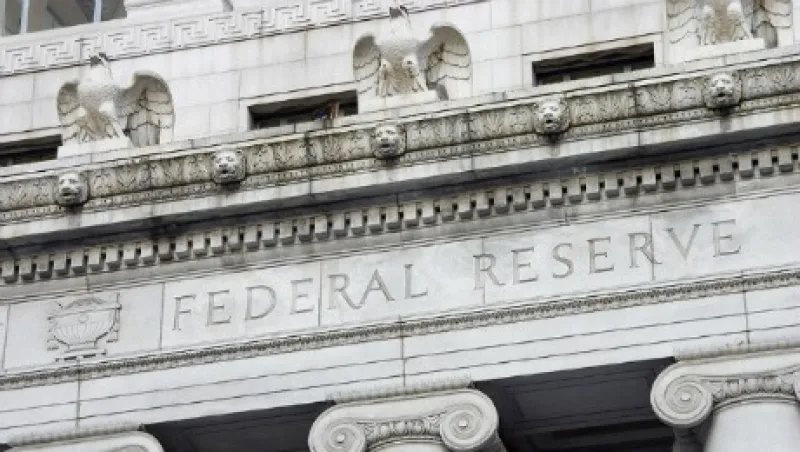As a subdued earnings season draws to a close, central-bank policy remains the primary focus for risk narratives. In a speech in Aspen, Colorado yesterday, Federal Reserve Vice Chairman Stanley Fischer took a hawkish tone, noting that U.S. economic fundamentals are supportive of another rate hike before year-end. With Fed chair Janet Yellen set to address the issue at the Jackson Hole symposium this week, market observers remain divided on the likelihood of an interest rate liftoff in September. The U.S. economy continues to strengthen, however mixed signals and concerns over weakness continue abroad. The problem facing Fed leaders as they address the public may be in contextualizing the Fed’s dual mandate goals from a broader standpoint. In a note to clients over the weekend, Robert Savage, CEO of New York hedge fund firm CCTrack, noted that “Yellen may well move the debate towards nominal GDP targeting and to a framework that ties the gaps between forward guidance as a policy tool against data reactivity.”
Rajan successor named. Over the weekend, the Reserve Bank of India announced that Urjit Patel will take the helm when current governor Raghuram Rajan steps down in early September. Patel is currently a deputy governor at the bank who has worked closely with Rajan. The decision signals that the bank’s focus in recent years on fighting inflation and currency depreciation will remain in play despite Rajan’s departure. Rajan surprised many elected officials and policymakers when he announced his intention to return to academia rather than serve a second term.
Duterte lashes out. In televised comments yesterday, Filipino President Rodrigo Duterte angrily defended his sweeping antidrug campaign, which has resulted in the deaths of hundreds of suspected criminals. In a rambling two-hour, late-night press conference, Duterte condemned the United Nations and U.S. State Department, both of which have criticized his policies. In a particularly heated moment Duterte, who entered office in late June, threatened to withdraw his nation from the UN after highlighting the organization’s policy failures in Syria and criticized the U.S. by pointing out ongoing controversies over racially motivated deaths by U.S. police. Some media outlets in the Philippines have reported that in Duterte’s first months in office more than 500 suspects have died in extrajudicial executions with law enforcement.
Pfizer to buy Medivation. New York-headquartered drug giant Pfizer today announced its plans to acquire Medivation, a Philadelphia-based cancer-drug developer. The deal puts the acquisition target at $81.50 a share, making for a valuation of roughly $14 billion. In April, French pharma Sanofi unveiled a more than $9 billion bid for Medivation that was rejected by the firm’s board even after the offer was sweetened.
Saudi stocks rise as market opens IPOs to offshore buyers. Stock prices rose yesterday on the Tadawul, the Saudi bourse, following the announcement late last week by Saudi Arabia’s Capital Market Authority that foreign investors will soon be allowed to participate in initial public offerings. The move is the latest in a string of changes designed to attract more foreign capital as Saudi Arabia prepares to hold an IPO for state-owned oil company, Saudi Aramco, which is anticipated to be the largest-ever offering in market capitalization terms.
Portfolio Perspective: Why Do Mosquitos Bite Me More? — Sean Darby, Jefferie s
In a world of miserly growth and flat yield curves, only two factors seem to matter to global investors: domestic real interest rates and the direction of the dollar. However, this simplistic asset-allocation model is not necessarily taking into account micro drivers such as the free-cash-flow yield (ex-financials) of the domestic bourses.
Post the Bank of England quantitative-easing plus program and the ongoing European Central Bank asset purchases, global bond yields are all undergoing repression, directly and indirectly. U.S. real long-term yields are well below historical levels. Equally, the negative yields in many Western sovereign bond markets make equities appear cheap, but this may not be true when observing how well covered dividends are or the free-cash-flow yield of the local bourse.
Last week’s benign U.S. inflation data and sanguine Federal Open Market Committee minutes has caused the dollar to roll over once more. This is good news for emerging market sovereign bonds, equities and currencies. We remain overweight emerging markets. We have recommended switching from the Standard & Poor’s 500 index to Hong Kong equities.
The rule of thumb for markets at the top-down level is to look at U.S. real rates. Thereafter, provided inflation is falling, foreign-exchange reserves are at least stable, and the current-account position is not deteriorating, investors should acquire sovereigns with higher real rates than 0.5 percent. Our recent analysis shows that there is a very low probability of the Fed raising rates in September coming into a U.S. election.
On a micro level, indexes tend to be distorted by the weighting of financials, but some emerging markets have begun to look expensive on free cash flow alone. Of course, this takes no account of the optionality of growth embedded in share prices or of the potential from dividend cuts if growth slows dramatically.
What can change this scenario? Firstly, fiscal relaxation might change this scenario given the need for growth in the developed world. Secondly, inflation might surprise on the upside.
The bottom line is overweight emerging markets on expectations of a lower dollar and low U.S. real rates.
Sean Darby is chief global equity strategist at Jefferies in Hong Kong.






